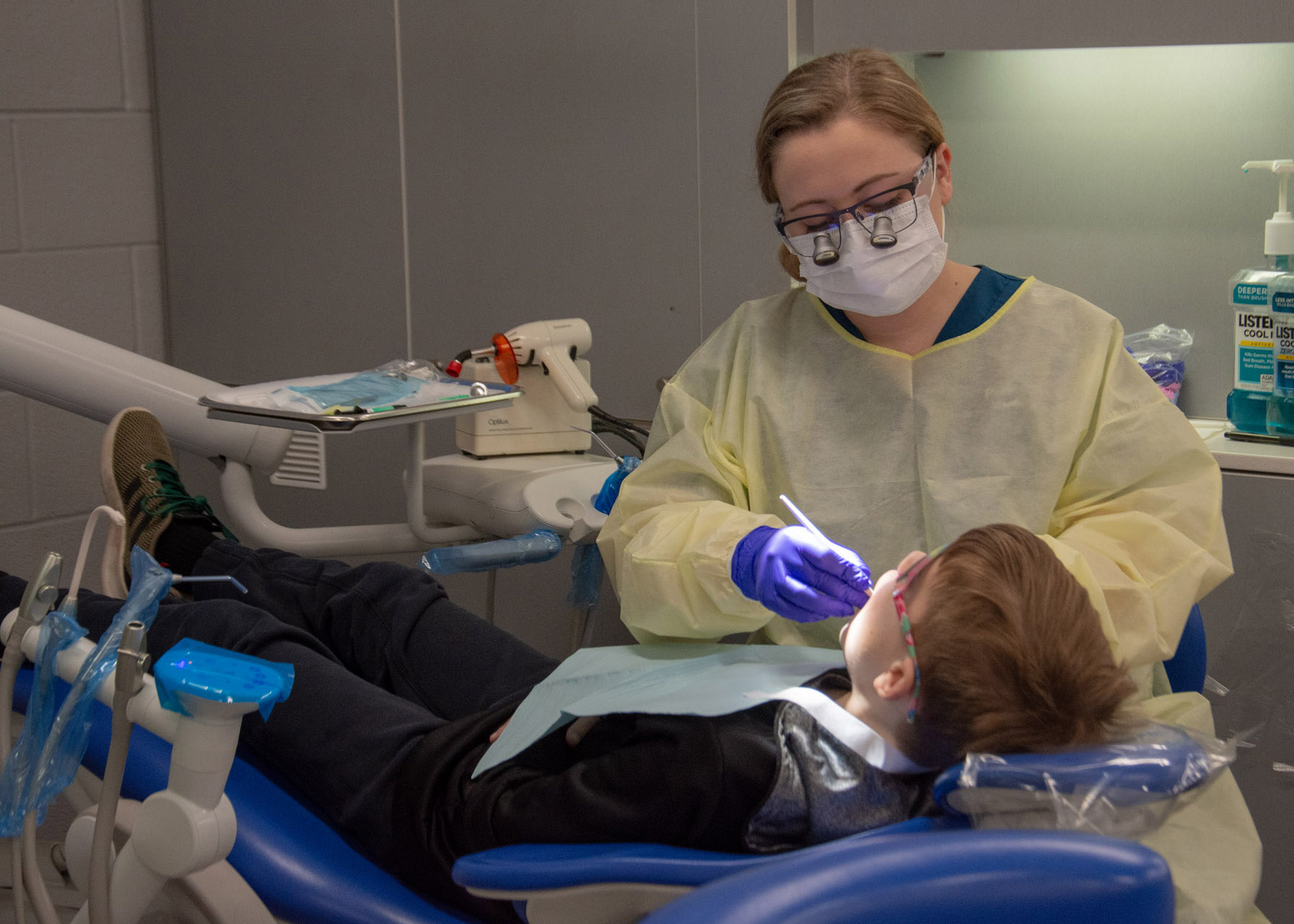Impact Report

Who will lead the workforce of tomorrow?
In 2018, a record high number of Pennsylvania employers indicated that finding qualified employees is the single most important issue affecting their companies.
President's Message: The workforce needs Penn College
Skills gaps. Burgeoning baby boomer retirements. Hundreds of thousands of unfilled jobs in manufacturing and a host of other industries. Scan business-news coverage any day of the week, and you are bound to find stories describing the skills and worker shortages confronting employers today – and for years to come, if you trust analysts’ forecasts.
Colleges and universities have noticed. Some are hopping on the bandwagon, touting how they are retooling program offerings to produce more graduates who can address the critical skills deficiencies plaguing the American workforce.
Here at Pennsylvania College of Technology, our ongoing focus on applied technology education and academic programming that satisfies employers’ needs is not a recent development. You could say it is imprinted in our DNA.
The “tomorrow makers” we turn loose with each successive graduation continue to make their mark in a diverse range of career fields, becoming the next generation of highly skilled professionals in nursing, welding and fabrication, plastics and polymers, mechatronics, automated manufacturing, heavy construction, information technology, building construction, physician assistant, automotive technology, aviation maintenance ... the list goes on and on.

The workforce needs us. And we deliver.
But don’t take my word for it. The 2019-20 Pennsylvania Budget that was approved in June designated an additional $4 million in appropriation funding for Penn College, reflecting our enviable track record in satisfying industry demand. The members of the Legislature who approved that appropriation know that our educational model generates measurable results. Elected officials visiting our campus never fail to be impressed by our real-world-ready facilities, labs and equipment. And they are wowed by the students who help showcase our academic majors for these tours.
Our hallmark is responding nimbly to workforce cues, and with this latest round of funding, we will do precisely that. We always have. The investment will benefit students enrolled in our welding, electrical technology, physician assistant and mechatronics programs. It also allows for expanded outreach to prospective students in high-growth areas of Pennsylvania.
An ambitious, 35,000-square-foot expansion of the welding laboratory in our Lycoming Engines Metal Trades Center (funded in part by a grant from the Economic Development Administration of the U.S. Department of Commerce) was under development and construction throughout all of 2018-19, wrapping up in time for a fall semester debut.
We can lay claim to having the largest welding-instruction facility in any higher education institution nationwide. We are also the only U.S. college or university to have an electron beam welder, having secured an agreement for that cutting-edge piece of equipment in early 2019.
During 2018-19 we also opened our new Penn College at Wellsboro facility, which was renovated and retrofitted after being gifted to us by UPMC Susquehanna. The expanded Practical Nursing Program offered at the site helps us address another critical skills shortage in the Northern Tier and beyond.
The Woodlands Bank Innovation Lab in Memory of Nicole Guthrie-Jones (a 2001 alumna) was dedicated May 29 as a unique space on campus for cooperative teaching and learning. It is the product of extensive research conducted by faculty, staff and students, and the ideas generated by the lab have spread to other campus spaces.
Support received from Shell Polymers in 2018-19 is enhancing our efforts to produce highly skilled graduates for the plastics industry, while helping to ease the growing skills gap in plastics manufacturing. The funding enabled us to enhance and upgrade an academic and research lab now known as the Shell Polymers Rotational Molding Center of Excellence.
Another 2018-19 facility improvement, though not related to academics, was the installation of an artificial turf playing surface at our athletic field, now known as UPMC Field, thanks to the support of a longtime Penn College partner. And, since the academic performance of our student-athletes exceeds that of the student body as a whole, perhaps you could argue that it is an improvement connected to academics.
Penn College is playing a pivotal role in developing and delivering apprenticeship training. In June, Workforce Development was recognized for its comprehensive efforts to develop quality apprenticeships with a nearly $8 million award – over four years – for one of 23 federal grants to expand apprenticeships. Administered by Penn College and shared with our partner, New Jersey Institute of Technology, the MIDAS (Modular, Industry-Driven Apprenticeship Strategies) grant will serve more than 3,200 apprentices. MIDAS is focused on advanced manufacturing in occupations such as CNC, mechatronics and plastics processing technician. MIDAS programs will also serve nontechnical topics like project management and supervisory skills.
One of the ways we help companies address skill shortages is by offering incumbent workers a continuum of education and training opportunities. Apprentices will always have a credit pathway defined for them. This key component of all Workforce Development grant proposals resonates strongly with funders.
With interest in apprenticeship training growing, our connection to employers, who also hire our graduates, is critical to preserve as we partner with them to grow a more responsive workforce.
But our institutional mission of providing industry-responsive programs and instruction cannot endure without wide-ranging philanthropic support, and 2018-19 was a watershed year for us, thanks to the generosity of our donors.
Commitments from our alumni, corporate partners, employees, parents and friends totaled $6.6 million in 2018-19 – the largest amount ever raised in a single year. Accordingly, the Penn College Foundation was able to increase the budget for scholarship awards from $827,690 to an anticipated $1.1 million in the 2019-20 academic year.
– Davie Jane Gilmour, president, Pennsylvania College of Technology

